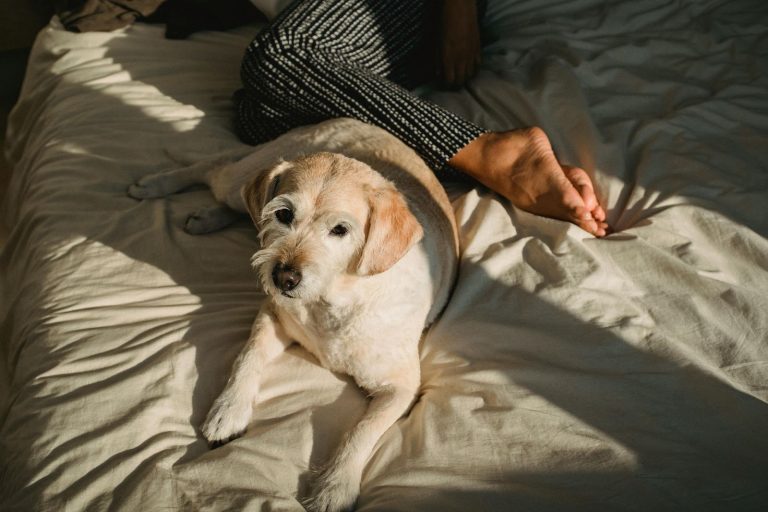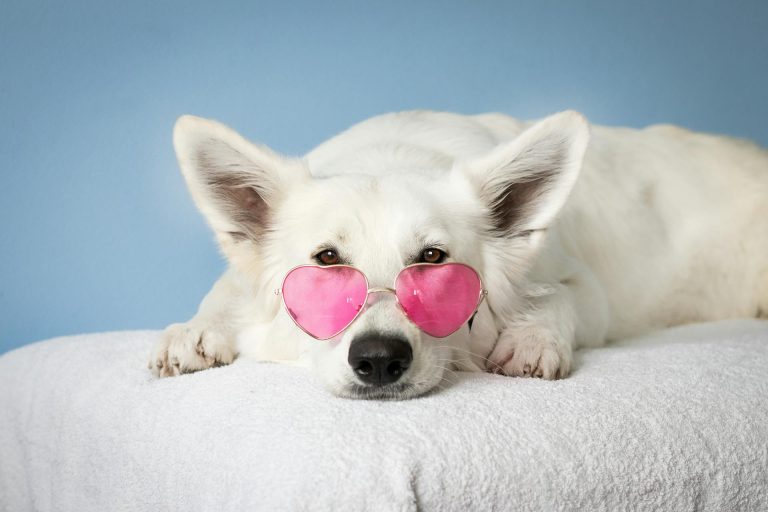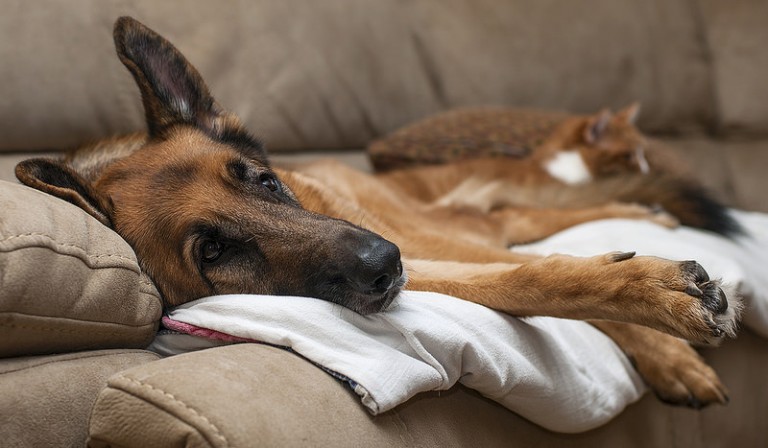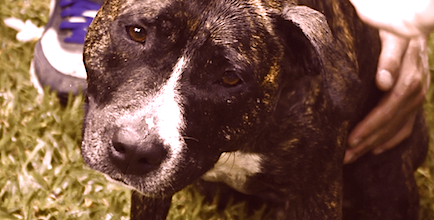Why Is My Dog Panting So Much?
Dogs pant to keep cool, but if it becomes excessive, there’s a chance that it’s a symptom of an underlying disease.

“My dog is panting a lot — is that normal?”
As a veterinarian, I find that’s never an easy question to answer.
After asking the client lots of questions, observing the dog and doing a thorough physical exam, I might be on track to finding out if the dog’s panting is normal or abnormal.
A few people will even make an appointment just to address the dog’s panting.
Most of the time, however, their comment about panting comes up as an afterthought: “By the way, check out his panting. I think my dog is panting more than usual.”

Don’t leave your pet’s safety to chance
Sign up for Petful recall alerts today.

Questions for You When Your Dog Is Panting a Lot
When I ask the client if their dog pants like this all the time, the answer is usually no: “He’s only panting now because he’s here.” Well, that’s good, I guess.
When I look at the non-panting dog who looks cool, calm and collected, I need to see if their human can be more specific and answer questions such as:
- What does the panting look like?
- How long does it last?
- Does the dog seem in distress when panting?
- Can you link the panting to specific circumstances?
- Has it increased much in the last few months?
- Are there any other behavioral/metabolic changes you’ve noticed that coincide with the panting (for example, increased thirst, anxiety)?
These are not always easy questions to answer, even for an observant person. First, we need to be on the same page about what true panting or normal panting looks like.

True Panting in a Dog
- Rapid rate of in/out respirations
- Lips are pulled back when dog takes air in and nose quivers when air goes out
- Rib cage doesn’t move much
- Tongue is sticking out a bit
- Maybe some excess drool
True panting can be normal with:
- Exertion: Even a fit dog can pant after exercise. The panting should resolve on its own in a short time. A dog who is unfit may pant with little exertion. As long as the dog recovers quickly, this may be a case of being unfit rather than being sick or having a serious underlying disease.
- Heat: Different dogs have different responses to heat. The breed, age, type of coat and body condition all dictate how a dog tolerates increased heat. When I suggest that transient panting may be due to the 90-degree weather, an observant client will tell me whether or not the dog has continued to pant in air conditioning and whether or not the dog was panting when it was 60 degrees out.
- Stress: This can be harder for some people to assess. Many dogs will exhibit panting when stressed. A dog may develop new anxieties or new behavioral disorders undetected by the human. Of course, thunderstorm anxiety is a classic case of panting due to stress.
- Excitement: Do you get home from work and your dog immediately goes into a panting session? Or does Chico the Chihuahua see another dog walking down the block and begin to pant like a cartoon character? As long as the panting subsides when the crazy canine excitement is over, this is normal.

The Physical Exam
Now it’s my turn to look at my patient and see if the physical exam can point us in a direction of normal versus abnormal panting in a dog.
Age and Body Condition Matter
Increased age and poor body condition are big causes behind a dog panting a lot.
- Most senior dogs will pant a bit more than younger dogs. It’s harder for them to do what they could do when they were younger. On top of age, if that older dog (or any dog) has arthritis, pain or is obese, then panting can increase.
- In an obese dog, panting may still come from the normal list above like exertion, heat, etc., but the panting is more severe and long-lasting — and the dog can look a bit distressed.
People aren’t usually aware that their dog has gained an additional 10–20% of body weight in the past year and may be developing other age-related conditions, such as arthritis or anxiety.
So while there may not be a true disease or respiratory or metabolic condition causing the panting, age, pain, discomfort and obesity are conditions that should be addressed.
If medical conditions are ruled out, lifestyle changes are important, even though people often don’t want to hear it.
Learn a little more about panting in dogs from this veterinarian:

Underlying Health Conditions That May Cause a Dog to Pant a Lot
The physical exam certainly points the vet in the direction of deciding if the dog’s panting is due to an underlying condition. Basic blood work, urinalysis and X-rays will be advised if the panting is excessive or abnormal.
The results of these tests and the history usually give us our answer.
Here’s a brief list of the most common causes of excessive panting in dogs:
- Pain: The pain can be from arthritis, other muscle/skeletal pain, abdominal or other painful conditions. The excessive panting is a response, and the cause of the pain must be discovered and addressed.
- Behaviors: A dog suffering from a true anxiety disorder like separation anxiety or canine cognitive dysfunction may pant excessively. Addressing the disorder with behavior modification and drug therapy is necessary to alleviating the panting.
- Drugs: Some drugs cause excessive panting in dogs, and the client may not realize it. Steroids, too much thyroid medication, benzodiazepines, opioids and other drugs can cause some dogs to pant a lot.
- Metabolic disorders: Renal failure, hypertension, Cushing’s disease, diabetic ketoacidosis and more can all cause excessive panting in dogs.
Finding out if a dog’s panting is normal or abnormal is not such a simple task. But a good history, a physical, lab tests, radiographs and an attentive client all usually lead us to an answer.
References
- Allen, Julie, BVMS, MRCVS, DACVIM (SAIM), DACVP. “Panting.” Clinician’s Brief. April 2016. https://www.cliniciansbrief.com/article/panting.
- Buzhardt, Lynn, DVM. “Signs Your Dog Is Stressed and How to Relieve It.” VCA Hospitals. https://vcahospitals.com/know-your-pet/signs-your-dog-is-stressed-and-how-to-relieve-it.
- Kay, Nancy, DVM, DACVIM. “When Is Dog Panting Abnormal?” Pet Health Network. https://www.pethealthnetwork.com/dog-health/dog-diseases-conditions-a-z/when-dog-panting-abnormal.







